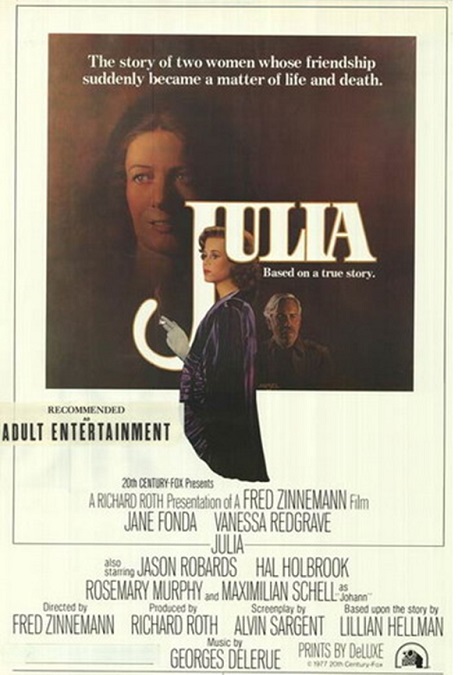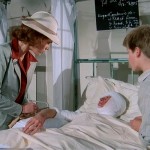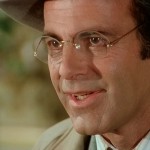
Julia – 1977
I need to confess, I didn’t have very high hopes for this movie. First of all, I didn’t know anything about it except that it starred Jane Fonda, who I always have a difficult time appreciating, and Vanessa Redgrave, who is easy to appreciate. Second, it was about Lilian Hellman, an author about whom I know nothing, and in whom I have no interest.
But that just goes to show you what I know. I was wrong on both counts. Let me discuss each of those points in a little more detail. I know that Fonda has had a prolific career and has done some great acting. However, it has been my misfortune to have only seen one of her films: Barbarella. I think that gave me a skewed sense of her skills as an actress because it was so campy and poorly acted. But in Julia, I have had to revise my opinion. She did a great job, and though I didn’t always like her character, it doesn’t mean she played it badly.
But that being said, I think that Redgrave was better. Fonda’s acting was all on the surface and sometimes lacked subtlety. But Redgrave had that unique unseen quality that set her above her costar. There were hidden depths in her eyes that made her fascinating to watch. Then again, I think my opinion may be biased.
Lilian Hellman, played by Fonda, was a famously celebrated dramatist, screenwriter, and playwright for over 50 years. Julia, played by Redgrave, is her dearest childhood friend. She is a very wealthy heiress who studies medicine in Vienna in the years before WWII. When the fascist regime begins to rise to power and the Nazi party starts to assert their authority in Europe, Julia uses her personal resources to fight them.
The film’s plot spends significant time developing the friendship between the two women, from their young and innocent beginnings to the dangerous days of the war. It follows Lillian’s rise to prominence as an author, and only follows Julia’s life as a medical student through Lilly’s sporadic correspondence with her. In fact, most of the 2 hour film is spent exploring their relationship and leading up to the last half-hour or so.
And it is that last half-hour that made the film so good. Julia has gotten involved with resistance fighters and asks Lilian to smuggle some of her family’s vast wealth into Germany. Lilian agrees because of her love for Julia, a love which, I might add, was depicted as nearly homosexual, though the point was made that their love was strictly emotional, and never physical. The tension that is created when Lilian agrees to smuggle the money into Berlin was wonderfully built and held until Lilian is able to leave Germany.
The way Lilian is met by one stranger after another, each of whom guides her towards the success of her mission, was very interesting to follow. The money is hidden in the lining of a fur hat which Lilly wears while all her baggage is confiscated and searched. And there is always a lot of natural suspense whenever Nazis are involved. In that way, most of the movie was a little slow without much action or tension, but the payoff of the climax was worth the wait.
And finally, I’ll say that the movie was only slightly feminist, which is perfectly fine. Sure, there were the lesbian overtones in the relationship between Lilian and Julia, but they were appropriate in setting up Lilian’s motivations for agreeing to take on the dangerous mission. I found it interesting that the book upon which the film is based was actually written by Hellman, and she claimed that the events depicted were factual. I wonder if the homoerotic relationship was there in Hellman’s autobiographical novel, or if the filmmakers added it to liven things up.
This movie is notable for a few other actors, like Jason Robards who played Lilian’s mentor and sometimes lover, Dashiell Hammett, Lilian’s initial contact in Paris who asks her to smuggle the money into Berlin, Johann, played by Maximillian Schell, Hal Holbrook as one of her wealthy friends, and Meryl Streep in her big screen debut as Ann Marie, Lilian’s snobbish socialite friend.
As with all film based on historical events, I did a little reading, and found that though Hellman purports the truth of her story, the filmmakers came to the conclusion that it was mostly fiction. Director Fred Zinnemann was quoted as saying, “Lillian Hellman, in her own mind, owned half the Spanish Civil War, while Hemingway owned the other half. She would portray herself in situations that were not true. An extremely talented, brilliant writer, but she was a phony character, I’m sorry to say. My relations with her were very guarded and ended in pure hatred.”








